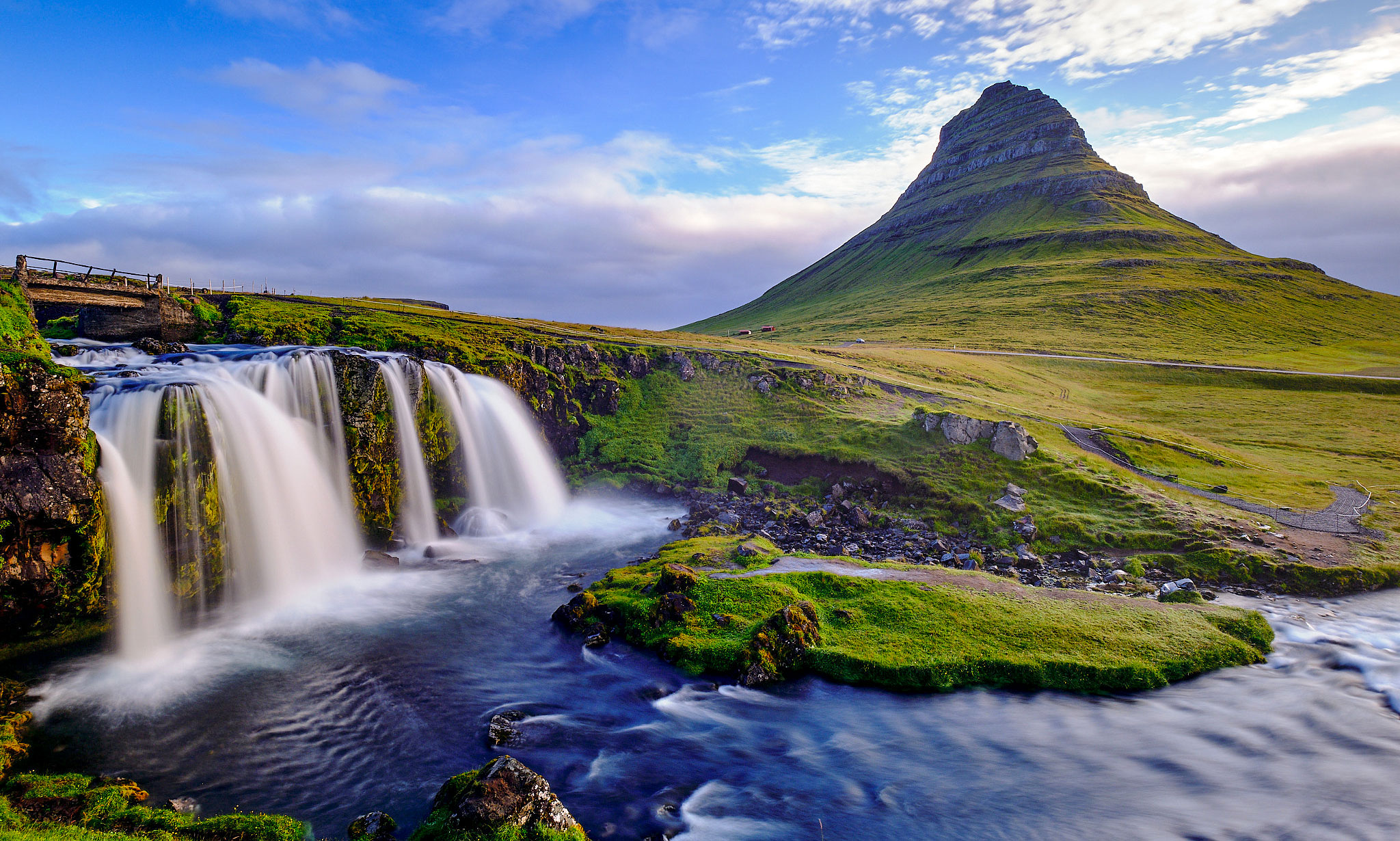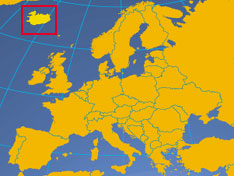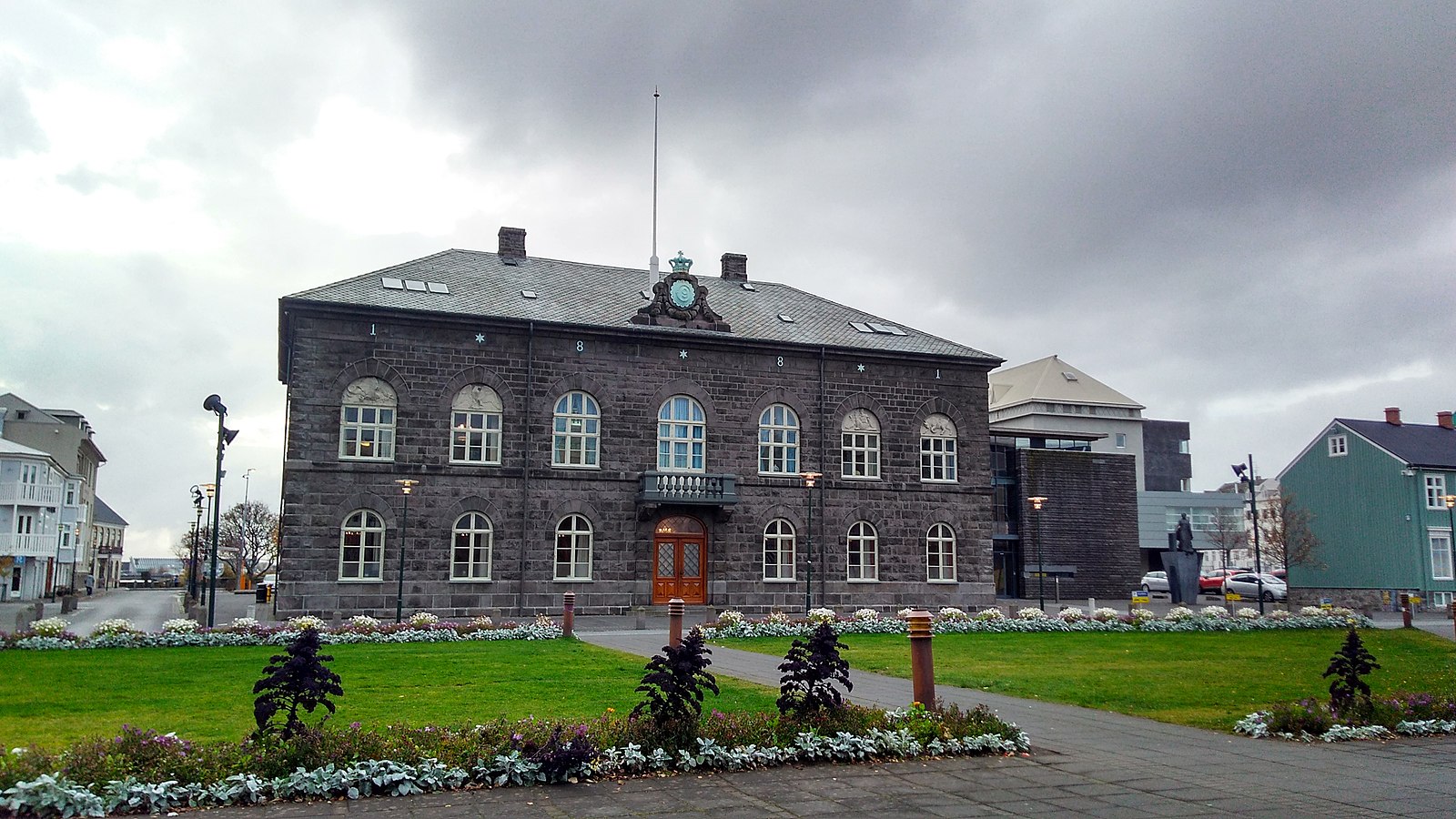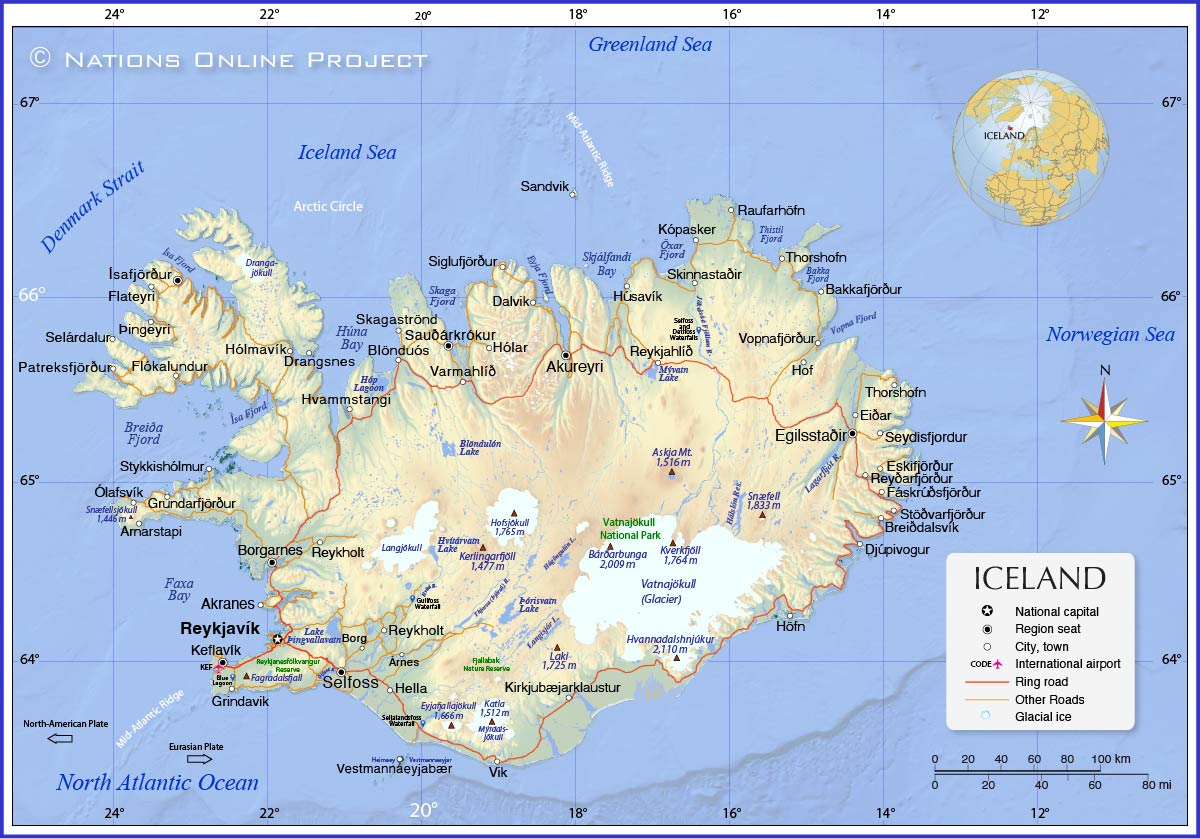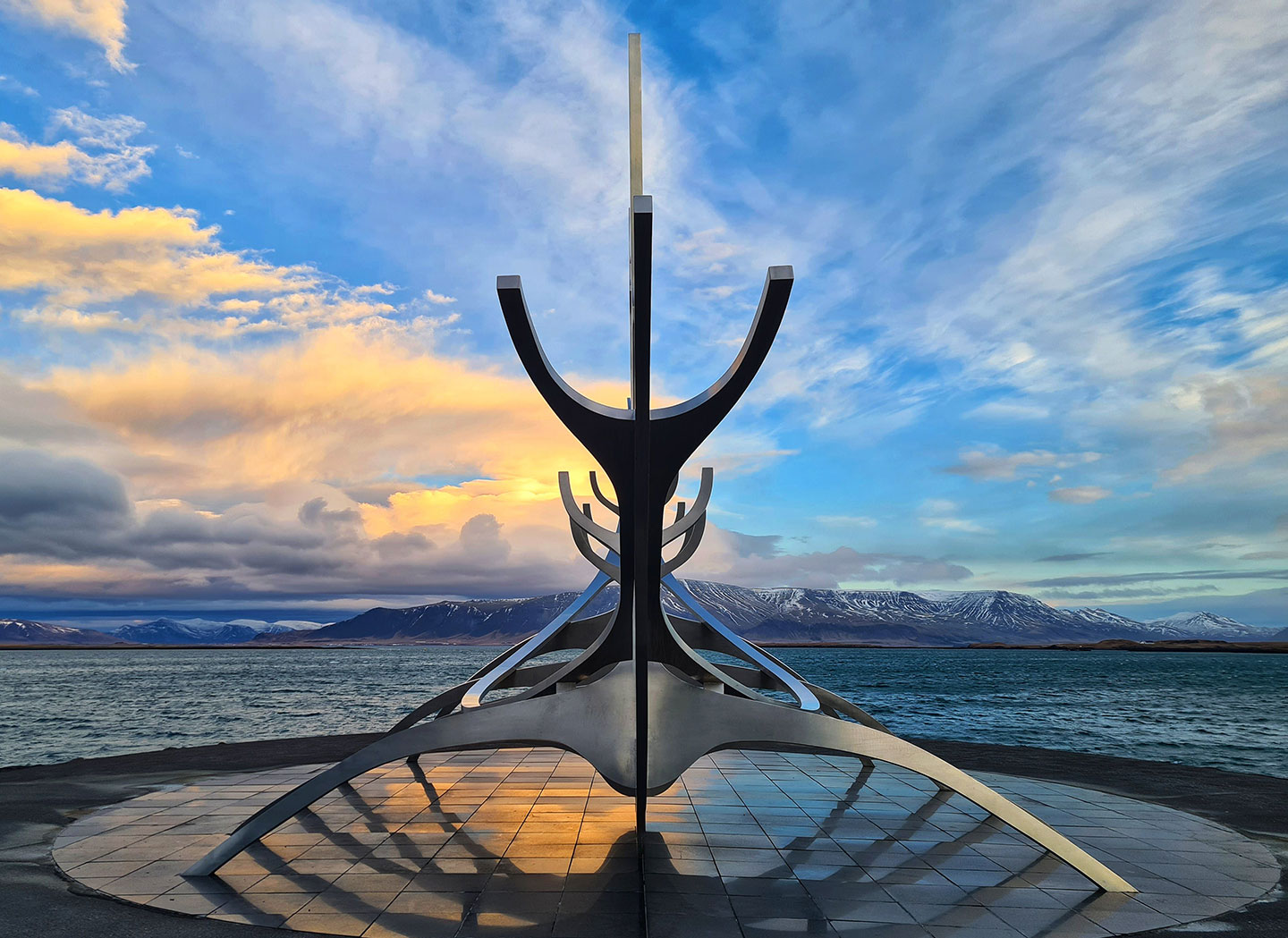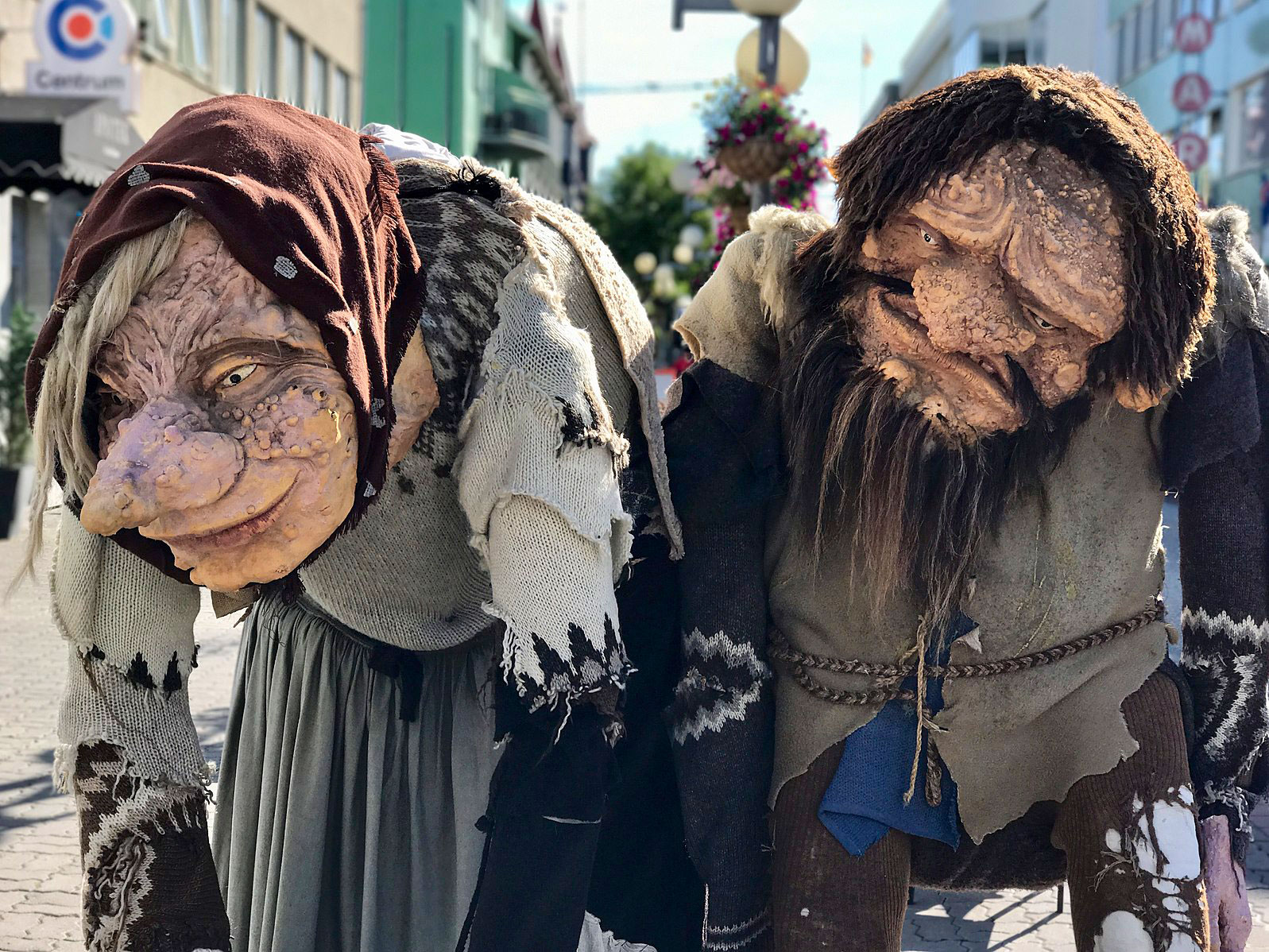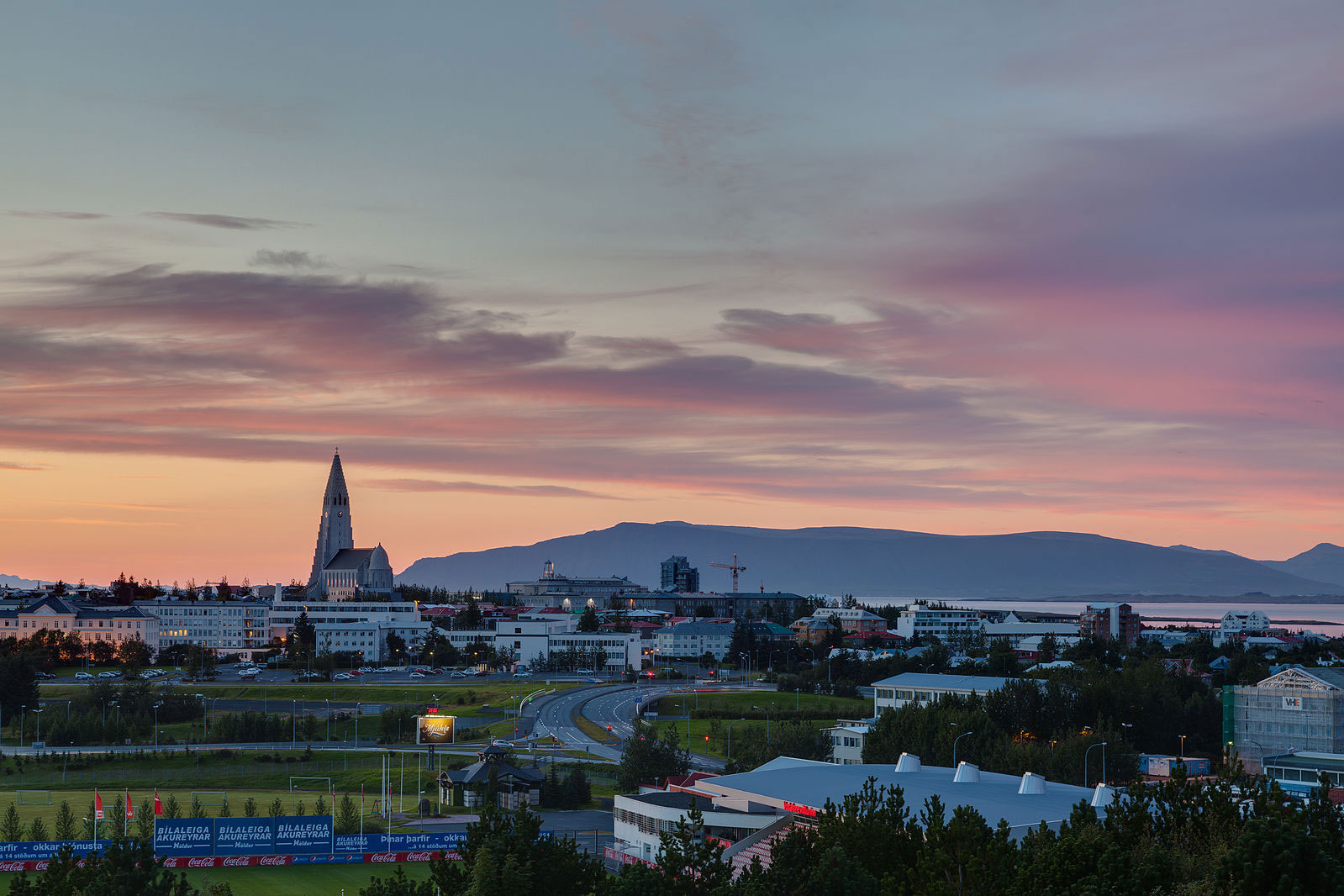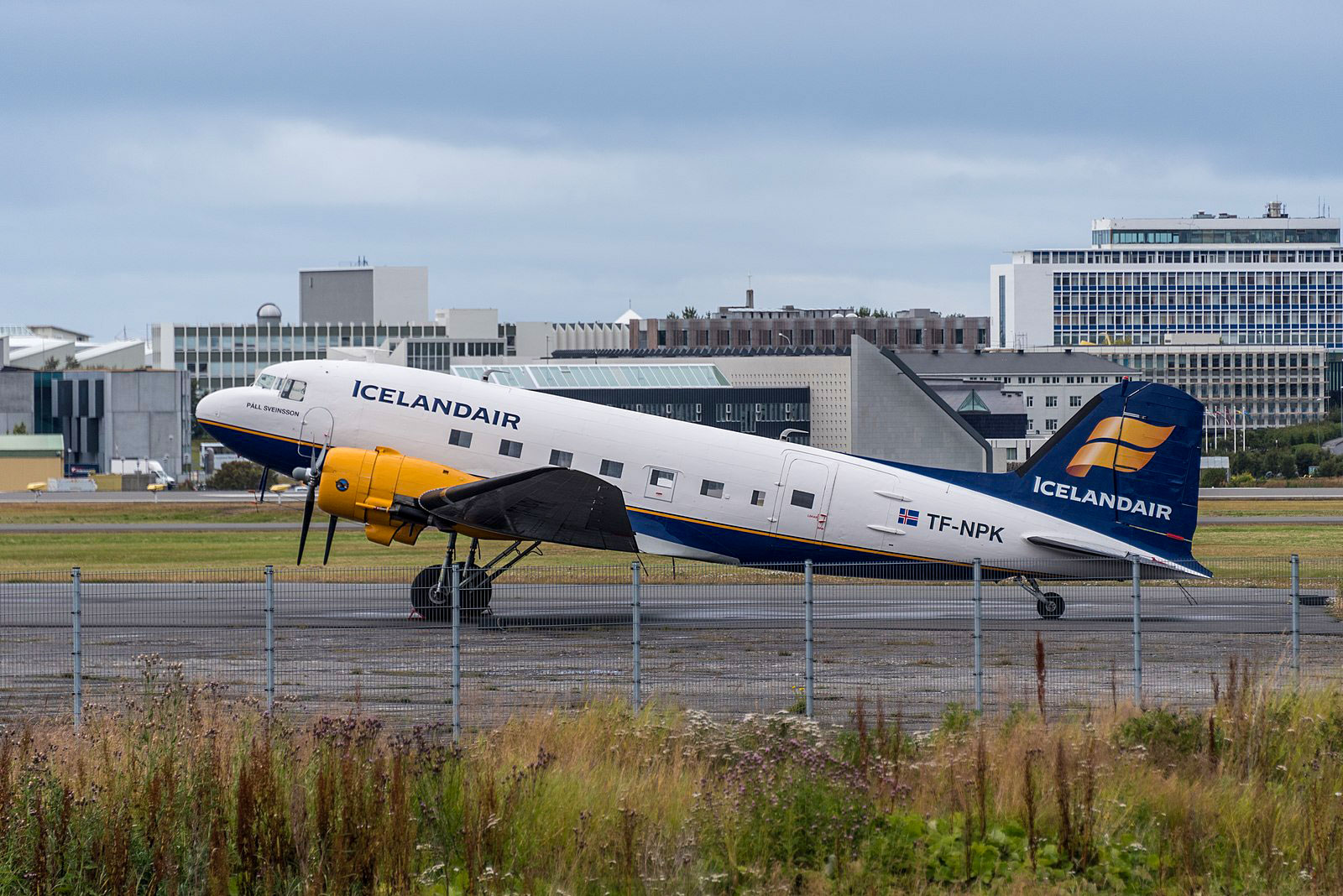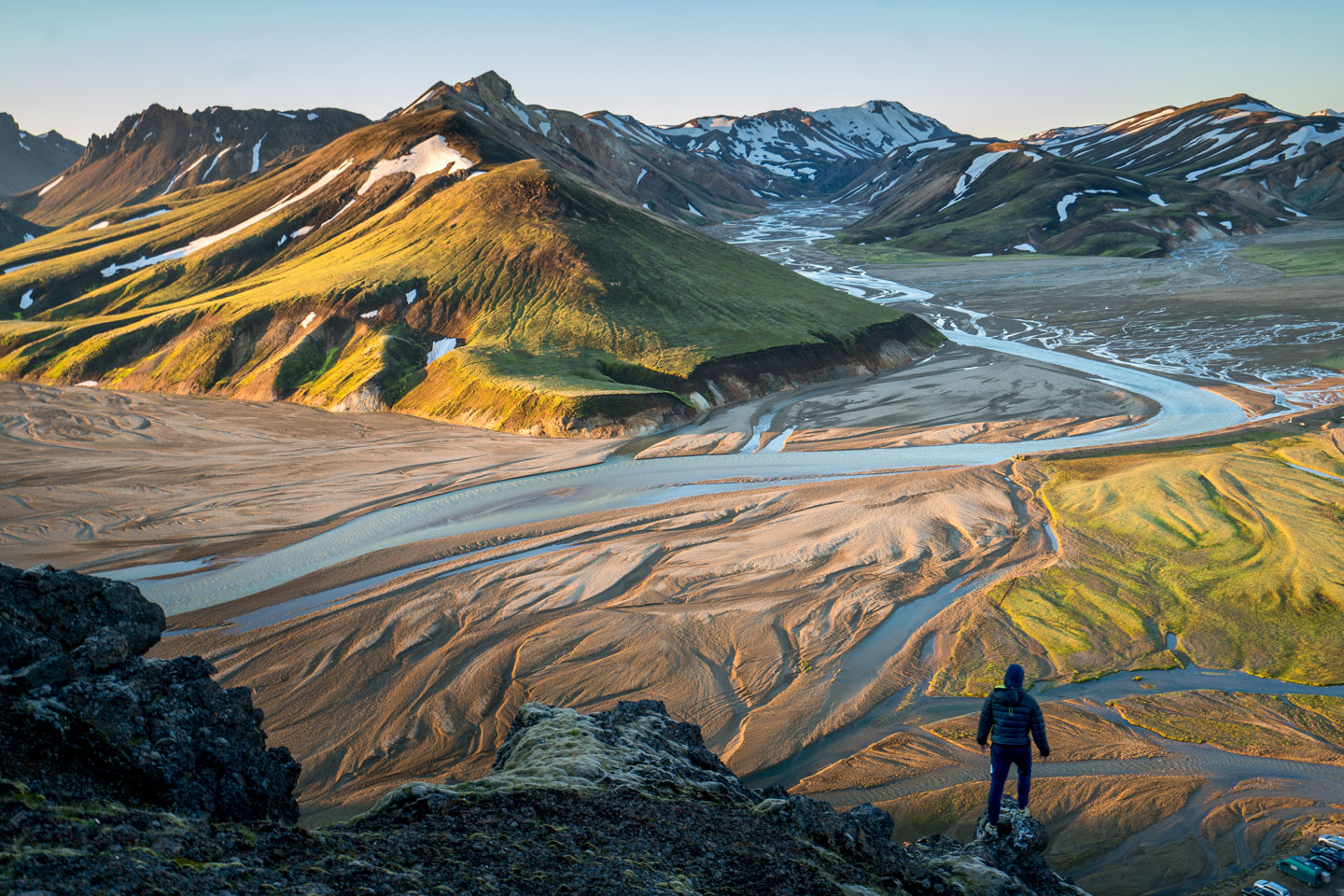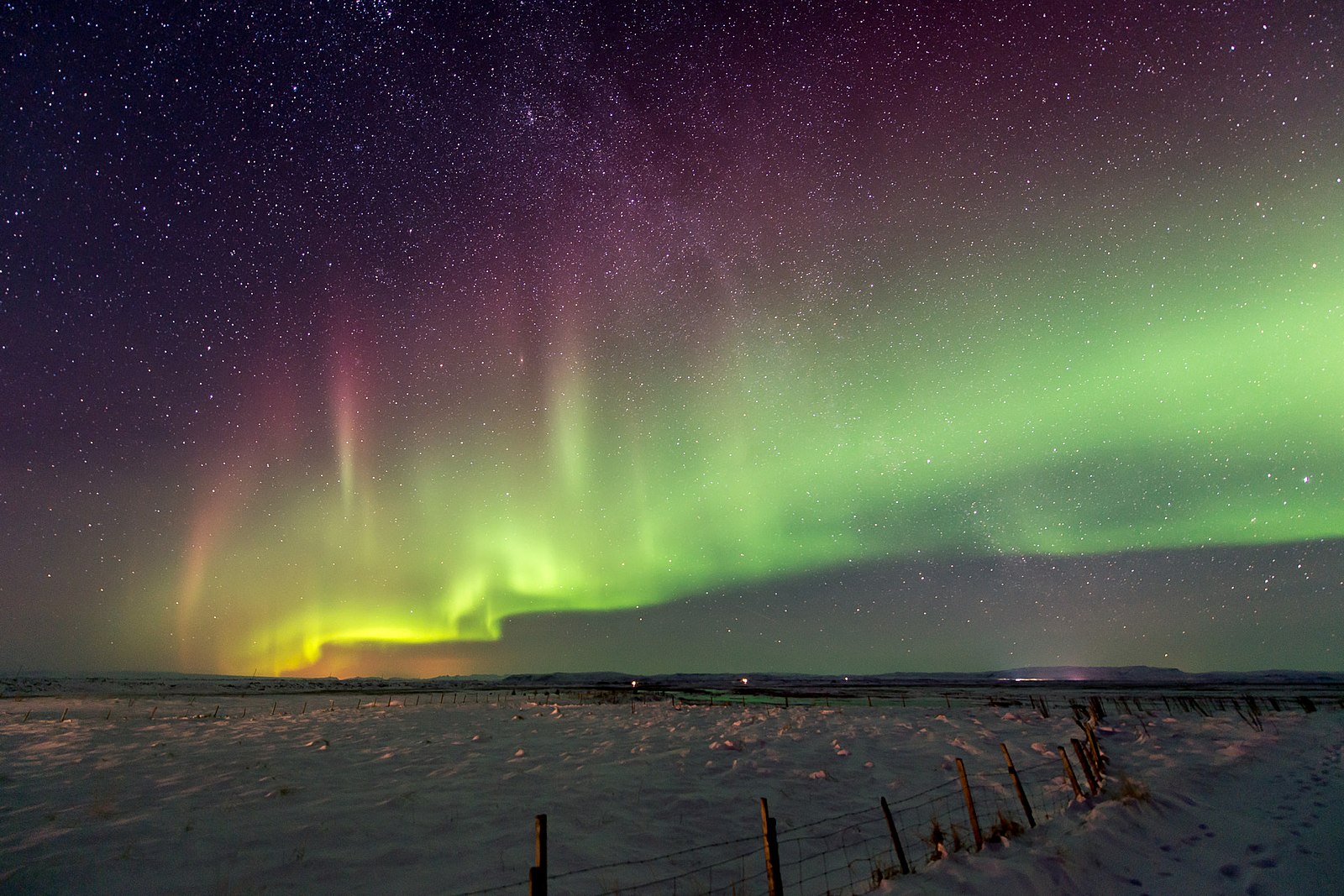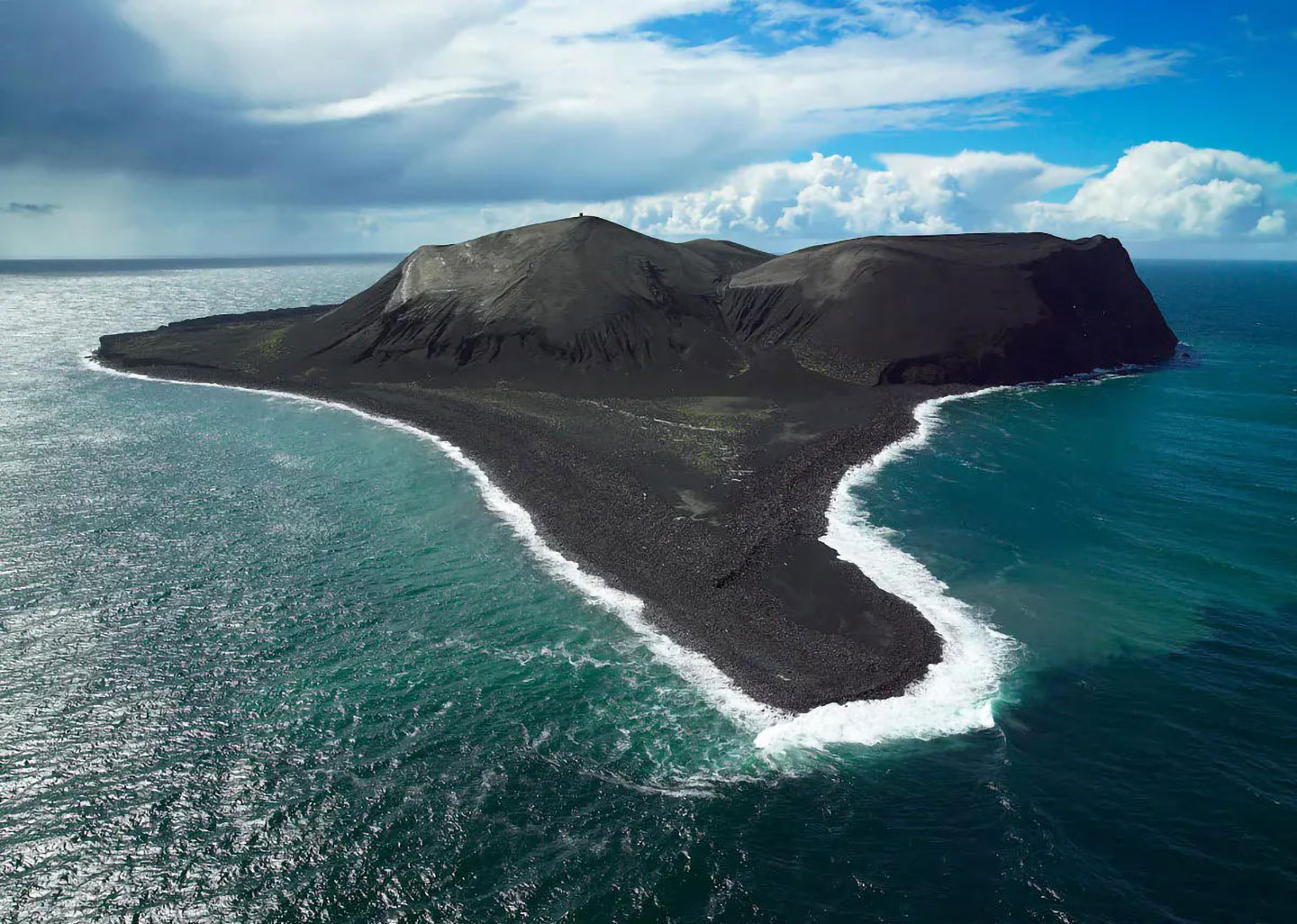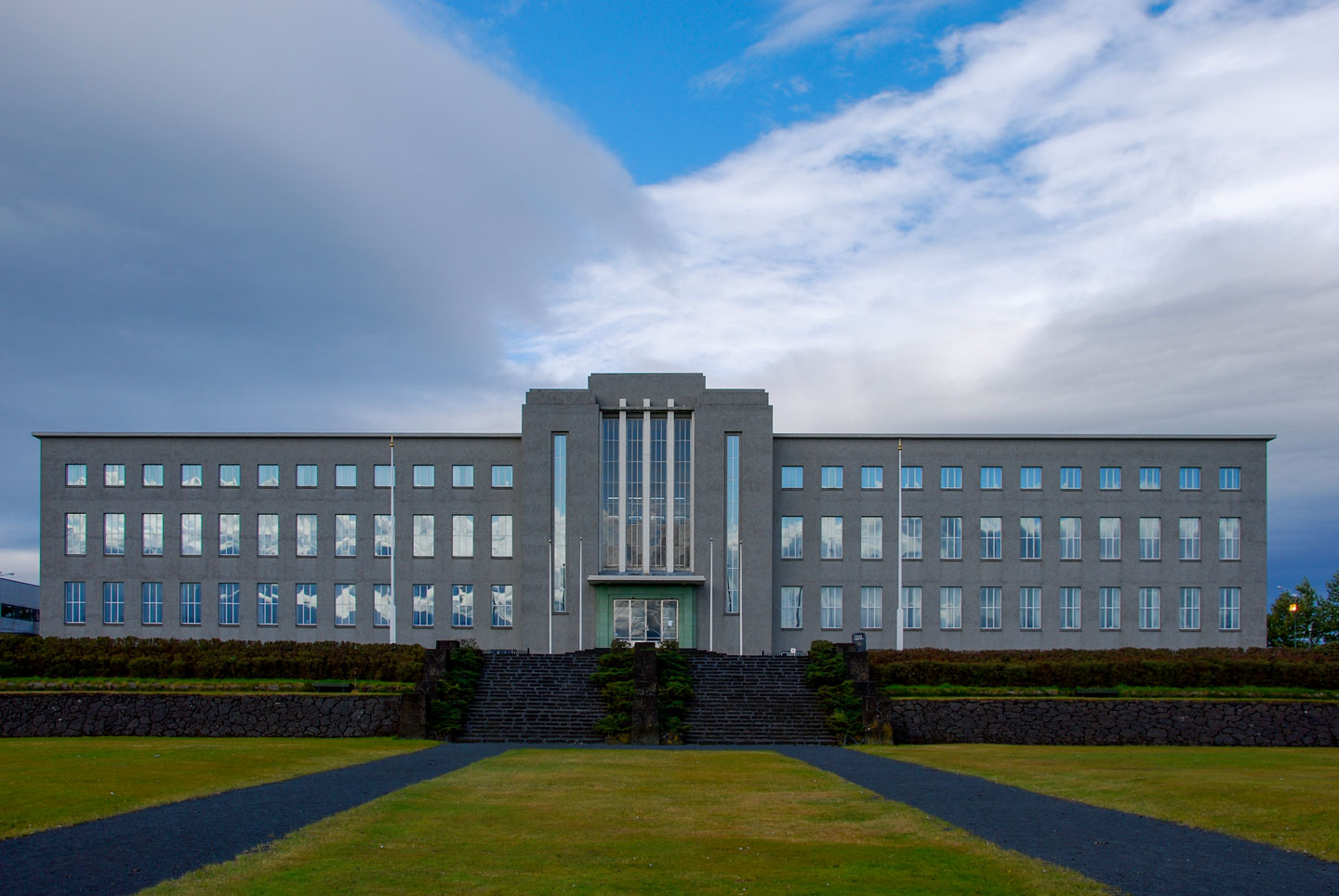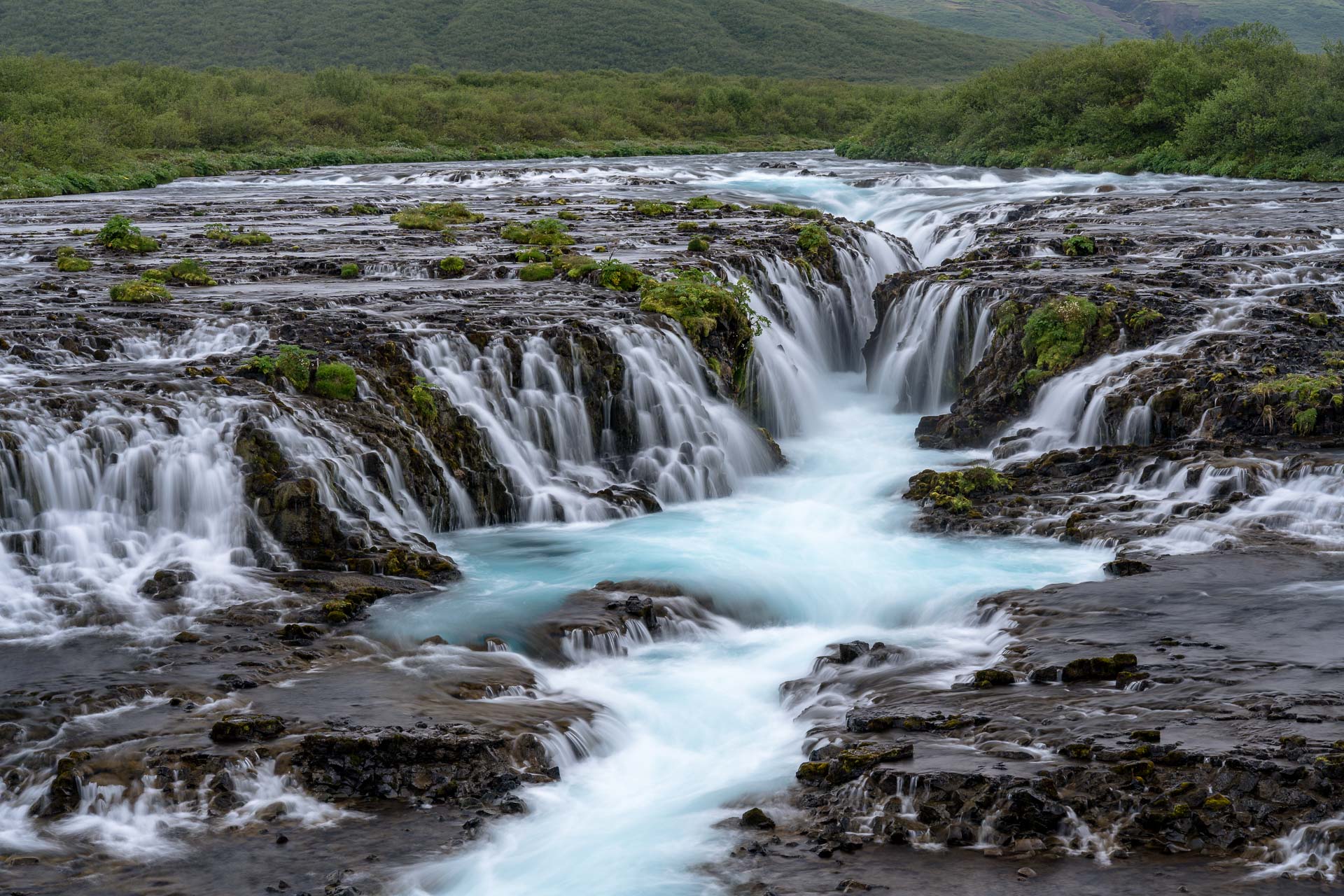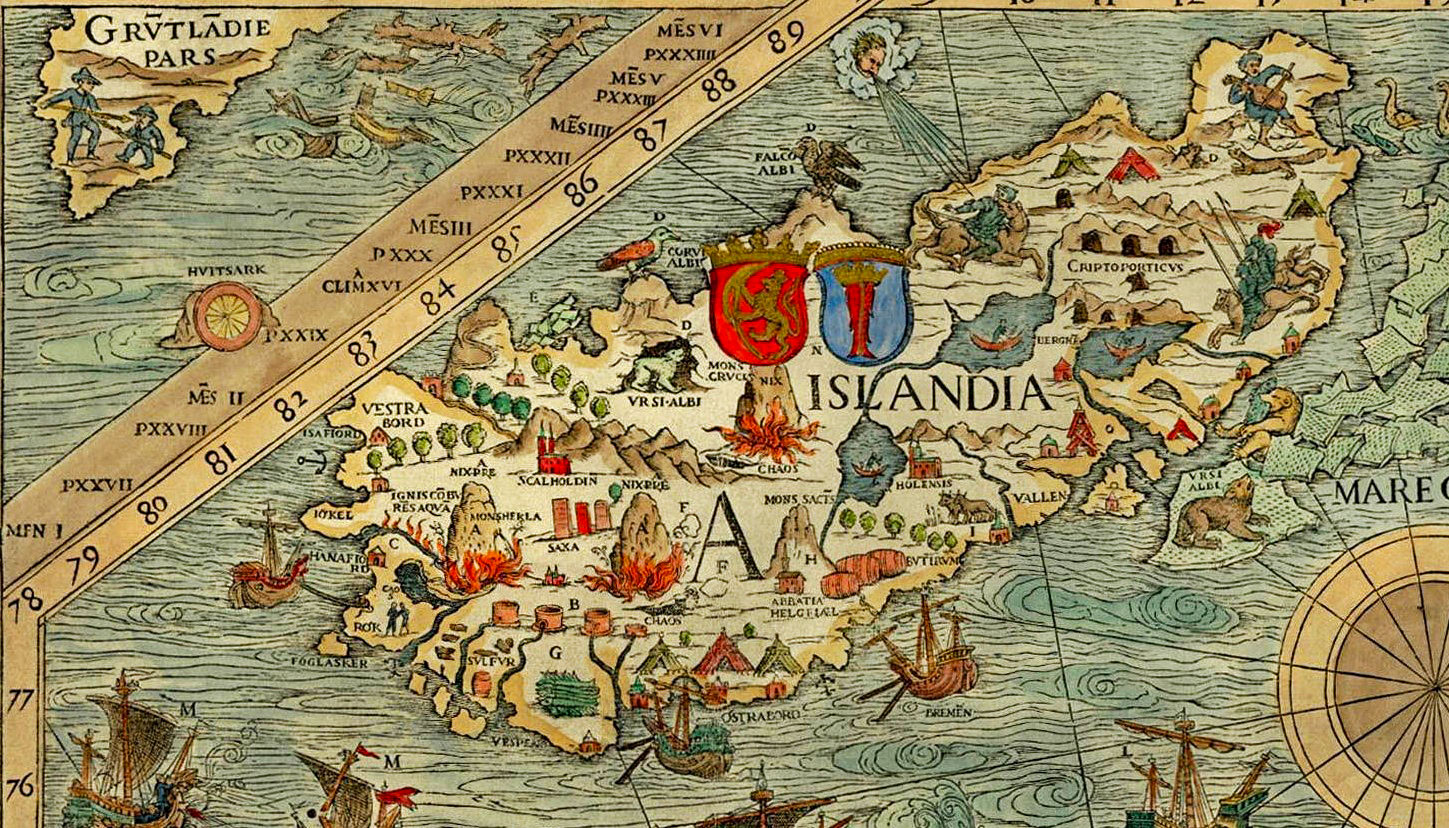What is Iceland known for?
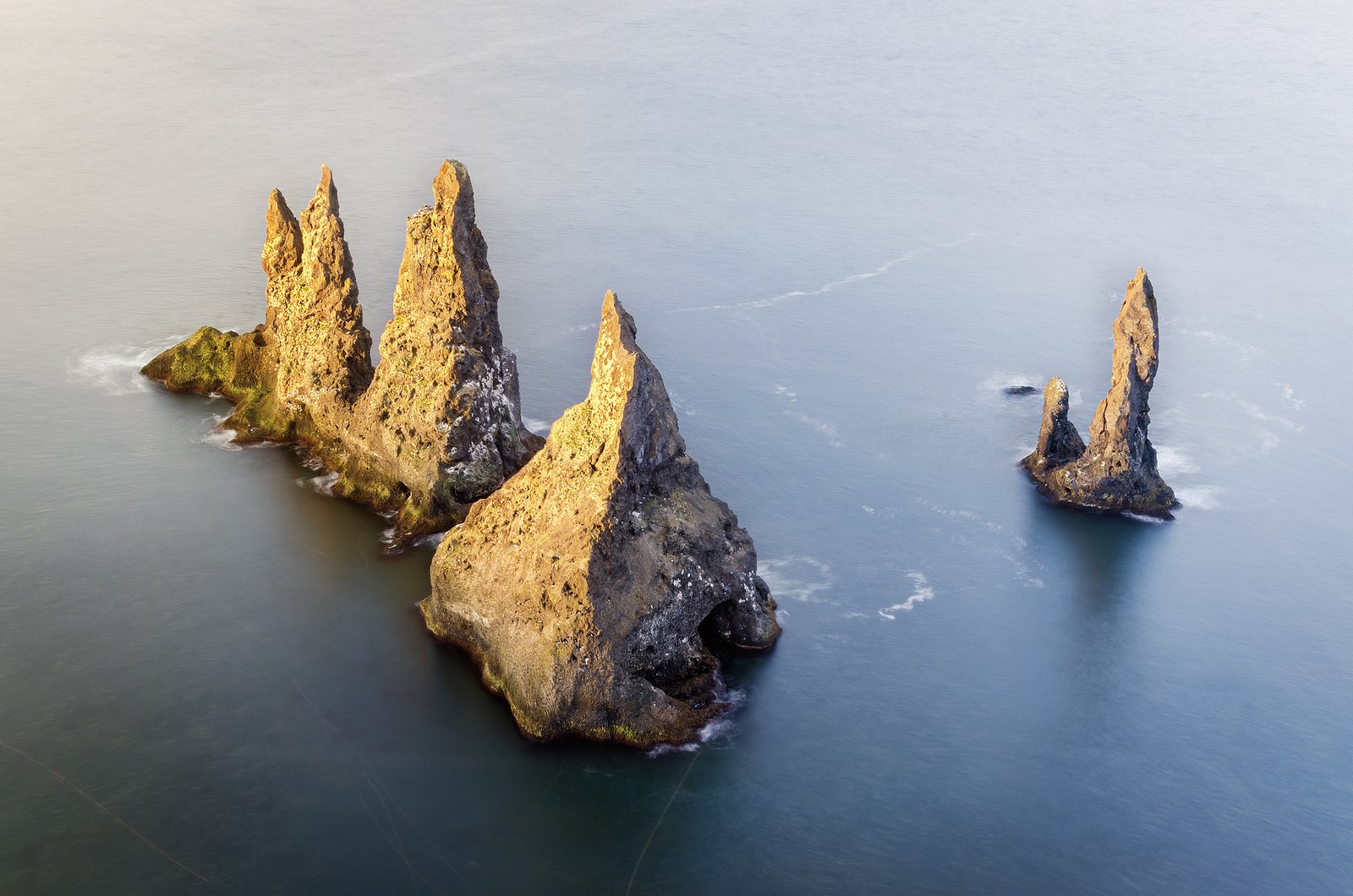 Reynisdrangar are basalt sea stacks located near the village of Vík í Mýrdal in southern Iceland. These formations are framed by a black sand beach, which was ranked as one of the ten most beautiful non-tropical beaches in the world.
Image: Jakub Fryš
What is Iceland famous for?
Reynisdrangar are basalt sea stacks located near the village of Vík í Mýrdal in southern Iceland. These formations are framed by a black sand beach, which was ranked as one of the ten most beautiful non-tropical beaches in the world.
Image: Jakub Fryš
What is Iceland famous for?
Iceland is famous for several reasons, including its stunning natural landscapes, unique geology, and vibrant culture. Here are some key aspects for which Iceland is well-known:
Geothermal Activity: Iceland is situated on the Mid-Atlantic Ridge, resulting in a high level of geothermal activity. Visitors can experience hot springs, geysers, and geothermal power plants. The most famous geyser is Geysir, which has given its name to all similar phenomena worldwide.
Waterfalls: The country is home to numerous breathtaking waterfalls, such as Gullfoss, Skogafoss, and Seljalandsfoss, among others. These waterfalls are often set against Iceland's dramatic landscapes.
Northern Lights (Aurora Borealis): Iceland is one of the best places in the world to witness the Northern Lights, a natural light display caused by the interaction of charged particles with the Earth's atmosphere.
Volcanoes: Iceland has a high concentration of volcanoes, and eruptions are not uncommon. One example is Eyjafjallajökull, a volcano known for its 2010 eruption that disrupted air travel in Europe for a week.
Glaciers: Vatnajökull, Europe's largest glacier, is located in Iceland. Glacier hiking and ice cave tours are popular activities for visitors.
Blue Lagoon: This geothermal spa is famous for its milky blue waters rich in minerals. It's a popular destination for relaxation and skincare.
Unique Wildlife: Iceland is home to various bird species, including puffins, as well as seals and whales. The country's rich marine life makes it a popular destination for whale watching.
Viking History and Culture: Iceland has a rich cultural history, with a strong connection to its Viking past. The Icelandic sagas, medieval literary works, provide insights into the country's early history.
Clean and Renewable Energy: Iceland relies heavily on renewable energy sources, particularly geothermal and hydropower. The country has made significant strides in sustainability.
Reykjavik: The capital city is known for its vibrant arts and music scene, unique architecture, and lively nightlife.
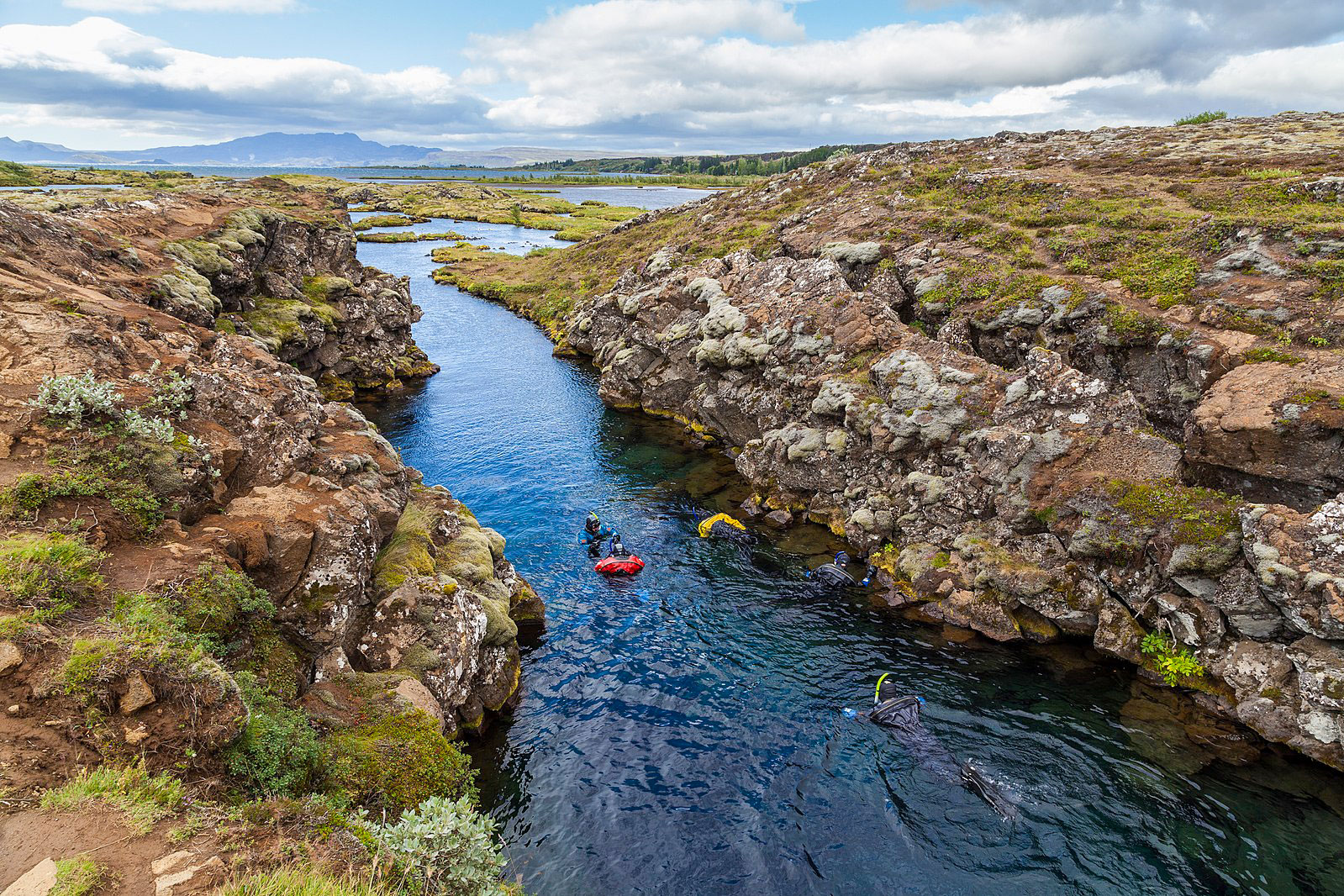 Scuba diving between two tectonic plates at the Silfra Fissure, a unique geological formation in Þingvellir National Park, Iceland, where the North American and Eurasian tectonic plates are moving apart. Silfra is known for its clear waters and vibrant underwater visibility; it is a popular spot for diving and snorkeling.
Image: Diego Delso
A few more facts...
Energy Independence:
Scuba diving between two tectonic plates at the Silfra Fissure, a unique geological formation in Þingvellir National Park, Iceland, where the North American and Eurasian tectonic plates are moving apart. Silfra is known for its clear waters and vibrant underwater visibility; it is a popular spot for diving and snorkeling.
Image: Diego Delso
A few more facts...
Energy Independence: Iceland is one of the few countries in the world that is almost entirely energy-independent, relying on renewable energy sources like geothermal and hydropower. This makes it a global leader in sustainable energy use.
Lack of Mosquitoes: Iceland is remarkably mosquito-free. Thanks to its cool climate and windy conditions, mosquitoes are not prevalent, making outdoor activities more enjoyable without the annoyance of these insects.
Literary Heritage: Iceland has a strong literary tradition, and a high percentage of its population is known to be avid readers and writers. The country has a rich collection of medieval literature, including the famous sagas.
No Army: Iceland is one of the few countries in the world with no standing army. Iceland's small coast guard and international agreements provide its defense.
No Surnames: Icelanders traditionally do not use family names or surnames in the conventional sense. Instead, they use patronymic or matronymic naming systems based on the father's or mother's first name.
Equal Rights: Iceland is known for its strong commitment to gender equality. It has consistently ranked high in global gender equality indices and was the first country in the world to democratically elect a female president, Vigdís Finnbogadóttir, in 1980.
[ISGov]
No McDonald's: Iceland is known for having kicked out McDonald's in 2009. The last McDonald's burger sold in the country is on display in a museum, and the absence of the fast-food chain is often cited as an example of Iceland's commitment to local and sustainable food.
No Railway System: Despite its modern infrastructure, Iceland does not have a railway system. The country's challenging terrain and relatively small population have made the development of railways impractical.
Incredible Language Preservation: The Icelandic language has remained relatively unchanged for centuries, making it possible for modern Icelanders to read ancient texts with ease. Efforts to preserve the language include a language committee that creates new words for modern concepts.

